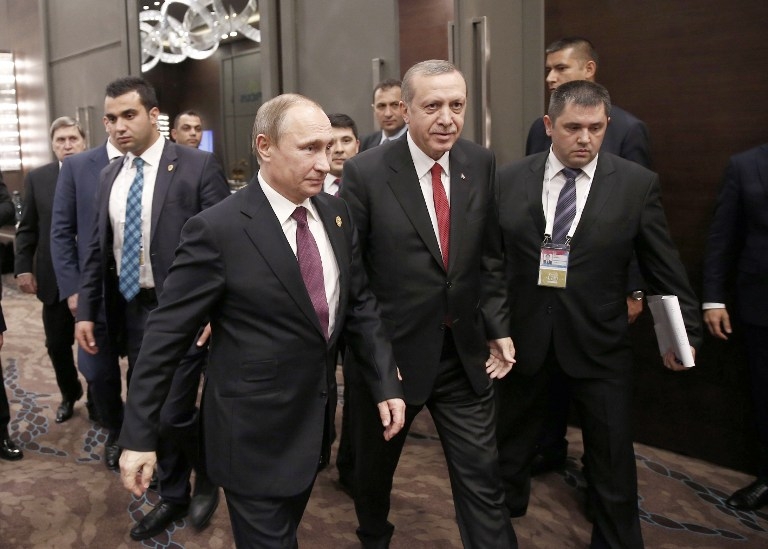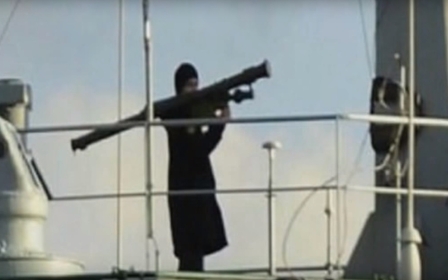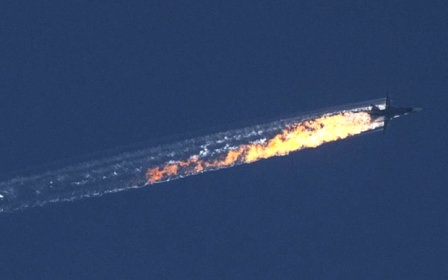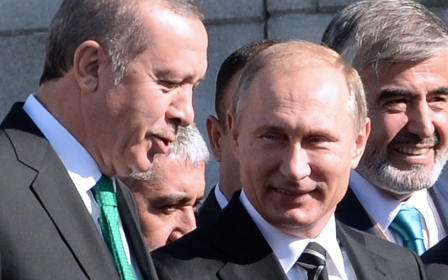Russia takes conflict with Turkey to the UN

Russia denounced on Tuesday the deployment of Turkish troops to Iraq, but the United Nations Security Council did not take a stand on the dispute.
Baghdad has demanded that Turkey withdraw its troops from northern Iraq, where Ankara has deployed a contingent of between 150 and 300 soldiers, backed by 20 tanks.
On Sunday, Baghdad gave Ankara 48 hours to remove its forces, but a senior Turkish official said this week that his government was unlikely to comply.
"It will depend on discussions," the Turkish official said.
According to Ankara, the contingent's arrival in northern Iraq was "a normal rotation" and not an illegal incursion or the advance party for an invasion.
Russia had called the informal talks, which were presided over by the United States, which heads the rotating presidency of the 15-nation council in December and leads the international coalition fighting the Islamic State Group in Iraq and Syria.
"It was very important to call the attention of the Security Council to this situation," Russia's UN envoy Vitaly Churkin.
"We believe Turkey has acted recklessly and inexplicably in carrying out additional deployments in Iraq without the consent of the Iraqi government."
A "disappointed" Churkin deplored the fact that the United States and other Western members of the council have refused to call ally Turkey to order or reaffirm Iraq's sovereignty.
He called the Turkish moves "a reflection of the lack of legality in the actions of the international coalition led by the US."
"The impact of this meeting would have been stronger with a united message but we were not able to achieve that," Churkin added.
Iraqi ambassador Mohamed Ali Alhakim stressed that Baghdad and Ankara "are working on this bilaterally" and that the talks were "going very well". He said the initiative was not discussed with Moscow.
US State Department spokesman John Kirby welcomed the talks.
"We continue to believe that the best path forward, here, is for Turkey and Iraq to work this out bilaterally, and to have discussions," he said.
"They have, and we're encouraged by that."
Relations between Moscow and Ankara have been tense since Turkish fighter jets shot down a Russian military plane on the Syrian border on 24 November.
Since then, Russia has imposed sanctions on Turkey, including a ban on the import of some Turkish foods and a halt on sales of Turkish holiday travel packages - a major blow to the tourist industry.
Ankara has warned it could respond in kind, with Turkish Prime Minister Ahmet Davutoglu saying that his government is considering retaliatory measures.
Samantha Power, the US ambassador to the United Nations, suggested that Turkey should negotiate its troop presence with Baghdad.
"Our understanding of the original Turkish deployment is that it was negotiated with the Iraqi government. So we are hopeful that this additional deployment is something too that can be done in that manner," she said.
UN spokesman Farhan Haq urged both sides to resolve their differences over the presence of Turkish troops near Mosul "through constructive dialogue."
New MEE newsletter: Jerusalem Dispatch
Sign up to get the latest insights and analysis on Israel-Palestine, alongside Turkey Unpacked and other MEE newsletters
Middle East Eye delivers independent and unrivalled coverage and analysis of the Middle East, North Africa and beyond. To learn more about republishing this content and the associated fees, please fill out this form. More about MEE can be found here.




